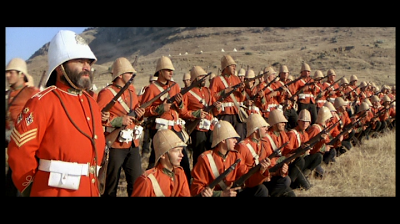From an astute commentary by Robert Salisbury, former Leader of the House of Lords. Almost all of the essay applies as well to the USA and other western countries.
Our own country is caught by all this, as it was in the first half of the 19th Century and in the middle decades of the 20th. We were able to adapt to survive: in the 19th by extending the franchise and in the 20th by expanding public services and mass prosperity. As a result British governments regained the authority to govern. They did so by reforming the institutions of representative government the country already had, thereby responding to the demands of an electorate emboldened and liberated by technological change.
Today, governments are once again losing the authority to govern, and for similar reasons. Another major financial crisis might lose them it completely; but a new crisis might not even be needed. Whitehall’s failure to control immigration, its puny efforts to tackle the housing question, the feebleness of our defences, the incompetence of our transport and energy policies might, whether jointly or severally, tip us over.
In the past, the country has been sustained in times of crisis by a solid body of electors who felt they had an interest in the existing structures which kept them, on the whole, safe and relatively prosperous. That body’s support is no longer so solid. The IT revolution is largely responsible. The speed of communications make governments and Parliamentary procedures look flat-footed. Increasingly the public is at least as well-informed as the Whitehall departments who are telling them what to do. It is virtually impossible to keep anything secret and anyone who betrays a confidence is regarded as heroic. The more rules we have, the more the public feels they are used as a means of flouting their spirit.
Worst of all, social media stimulate one issue politics and make the simple solution credible. You and I know that competent administration is boring and usually demands compromises. We also know that effective legislation needs careful preparation, much internal and external debate, a mind-numbing command of detail and a lively warning mechanism against the law of unintended consequences. The same applies to parliamentary scrutiny.
Any sensible electorate would be only too pleased to delegate this necessary day-to-day grunt to a Whitehall and Westminster it trusted and, although interested and argumentative, get on with the rest of its life.
Sadly, that is not where we are.
The candidacies of Trump and Sanders are in large part responses to public concerns about the problems Salisbury describes. They are inadequate responses, likely to fail politically and on their own terms and eventually to be superseded by other responses. The pot will continue to boil at greater or lesser intensity depending on who gets elected and what follows. It seems unlikely that the underlying problems will begin to be solved unless the voters develop a realistic understanding of what needs to be done, and start electing politicians who are both willing and competent to do it. It may be a while.
